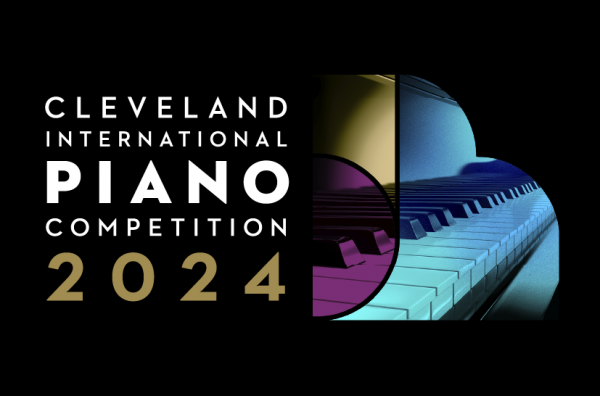by Mike Telin & Daniel Hathaway

This change made for the most interesting programming to be heard to date at the Cleveland competition. Over the five sessions, no piece was played twice.
Those of us who have been following CIPC for years probably rejoiced at not hearing multiple performances of the Chopin “Winter Wind” etude, or sitting through three performances of the same lengthy Schumann work in a single evening.
While all of this may have made the jury’s job slightly more difficult, the changes did make for two and a half days of enjoyable listening.
Monday, July 29 at 2:00 pm:
Zihao Wu (26, China) signaled that a new era had begun by beginning his set with a captivating performance of Tan Dun’s “Missing Moon” from Eight Memories in Watercolor, Op. 1.
Robert Bily (27, Czech Republic) introduced himself with a lovely rendition of his countryman Vítězslav Novák’s “Amoroso “from Zpomínky.
Khanh Nhi Luong (28, Vietnam) daringly stepped off with a vivid account of Prokofiev’s Sarcasms.
Monday, July 29 at 7:00 pm:
Leo de Maria (28, Spain) said “hello” with a playful, beautifully accented and extremely clear performance of Prokofiev’s Sonata No. 8.
Arisa Onoda (28, Japan) opened her program with Ravel’s “Noctuelles” from Miroirs, capturing its nocturnal mood of mysterious musical lines floating through the night.
Maxim Lando (21, United States) served up Lowell Liebermann’s technically thorny, pop-culture infused Three Dances from Frankenstein with flamboyant confidence.
Tuesday, July 30 at 2:00 pm:
Jacopo Giovannini (26, Italy) curated an attractive program that showed all of his musical sides. But it was his Unsuk Chin’s colorful and hypnotic excerpt from her Six Piano Études that grabbed and held our attention.
Antonio Chen Guang (29, China) prefaced his beautifully paced performance of Chopin Études, Op. 10 with two Chinese miniatures, producing — with Chopin’s help — an edge-of-your-seat performance.
Michelle Candotti (28, Italy) tucked Chopin and Prokofiev into her set, as well as early 19th century French composer Hélène de Montgeroult’s Étude No. 111 (she wrote 114 of them and escaped the guillotine with an apparently rapturous improvisation on La Marseillaise!)
Tuesday, July 30 at 7:00 pm:
Jonathan Mamora (29, United States) started with Australian composer Carl Vine’s Resolve — producing a very big sound and nice dynamic contrasts in an odd piece.
Zhu Wang (27, China) programmed Indian-American composer Nina Shekhar’s “light up” from Postcards — including ricocheted staccatos over a bass line, swift, well-handled technical passages and nice color changes and phrasing.
Evren Ozel (25, United States) visited a rarity: Four American Indian Preludes by “the father of Native American composition.” His attentive playing of Ombaska (Daylight), Tabideh (The Hunt), and Nikatoheh (Love Song) was followed by the energetic To’kah’ni (Warrior Dance) for which the pianist used his arm and fist at the end.
Wednesday, July 31 at 2:00 pm:
Yelaman Vernur (28, Kazakhstan) Showed his composer chops with his own Berceuse pour l’enfant mort, Op. 4. A magical work that beautifully unfolded before your ears and perfectly complimented his performances of Debussy and Haydn.
Mirabelle Kajenjeri (26, France) led off with Ukrainian composer Viktor Kossenko’s Étude Op. 8, No. 8 in F-sharp Minor, bringing a beautiful, nuanced sound to the lovely piece.
Giuseppe Guarrera (32, Italy) shaped Amy Beach’s atmospheric 5 Improvisations, Op. 148 with a controlled technique and an expansive sound.
Zijian Wei (25, China) gave a rare performance of Samuel Barber’s Excursions, Op. 20 that boasted fine articulations, and assured technique. He had a little extra fun in the second movement “In slow blues tempo,” and concluded the Quarter-Final Round with an extravagant medley of Mozart opera tunes by the reliably effusive Liszt.
Published on ClevelandClassical.com August 1, 2024.
Click here for a printable copy of this article



